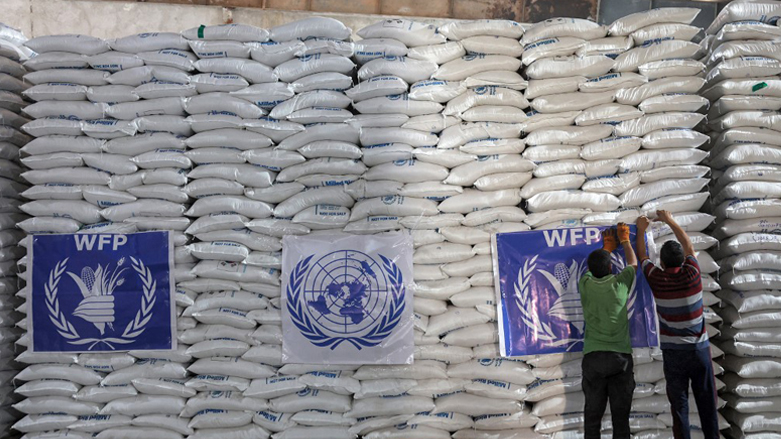UN says reached deal with Syria over key aid crossing

The United Nations says it will resume aid deliveries to rebel-held areas of northern Syria via Turkey after reaching agreement with Damascus -- a deal that raises concerns among relief groups who want Syrian authorities kept out of the process.
Under a 2014 agreement, most international aid had passed through the Bab al-Hawa crossing from Turkey without the authorization of Damascus.
But last month, the Security Council failed to reach consensus on extending the mechanism, and the UN said a subsequent Syrian offer to keep the crossing open for another six months contained "unacceptable" conditions.
Late Tuesday, a UN spokesman said Secretary-General Antonio Guterres "welcomes the understanding reached yesterday by the United Nations and the government of Syria on the continued use for the next six months of the Bab al-Hawa border crossing."
The deal followed "engagement" between UN humanitarian affairs chief Martin Griffiths and Damascus for the world body and its partners to keep providing assistance "at the necessary scale and in a principled manner," the statement said.
The Syrian government's previous conditions included that the UN cooperate with it fully and not communicate with "terrorist organizations" -- a reference to Hayat Tahrir al-Sham, a jihadist group formerly affiliated with Al-Qaeda that controls the Syrian side of the Bab al-Hawa crossing.
"The fact that we have the understandings in place is itself a sign that the issues were resolved," UN spokesman Farhan Haq told reporters on Wednesday.
More than four million people live in rebel-held areas of northern and northwestern Syria, many of them in overcrowded, impoverished displacement camps.
'Get the trucks moving'
In recent weeks, several international organizations had expressed fear that allowing Damascus control over the flow of aid to rebel-held areas could result in limiting access to those most in need.
The International Rescue Committee (IRC) voiced alarm at the announcement.
"We are concerned that the removal of certainty and security provided by Security Council authorization will impact the ability of humanitarian organizations, and particularly Syrian NGOs, to operate effectively," the relief group said in a statement.
"The Security Council resolution was one guarantee that provided communities in the northwest some comfort knowing their access to lifesaving assistance was supported and protected by the international community."
The IRC added that the deal's expiry in February, "at the height of next year's winter season, raises significant concerns about the ability of the response to scale up to meet needs given the lack of predictability."
Hiba Zayadin from Human Rights Watch told AFP the arrangement was "not a tenable alternative for the UNSC (Security Council) resolution."
"I don't see how such an agreement made with the very government that has long obstructed and weaponized aid can guarantee principled humanitarian aid delivery into the northwest," Zayadin added.
According to Haq, aid deliveries via Bab al-Hawa will resume "as soon as possible."
"It may take some days, obviously, to get the trucks moving," he said in New York.
'Unacceptable'
The UN announcement came hours after it said Syria had extended for another three months the use of two other crossings -- Bab al-Salam and Al-Rai -- which were opened following a devastating February 6 earthquake.
Civil war erupted in Syria after President Bashar al-Assad's government crushed peaceful protests in 2011. The conflict has killed nearly half a million people and driven half the country's pre-war population from their homes.
Russia last month vetoed a nine-month extension of the Bab al-Hawa mechanism and then failed to muster enough votes to adopt a six-month extension.
Damascus regularly denounces the UN aid deliveries as a violation of its sovereignty. Its ally Moscow has been chipping away at the Security Council deal for years.
The White Helmets rescue group, which operates in the northwest, said the UN had "ignored the demands and pleas" of Syrians and allowed the government to control cross-border aid into the opposition bastion.
"Placing the fate of life-saving aid for millions of innocent people in the hands of those who killed them, forced them from their homes and robbed them of their rights is unacceptable," it said on social media.
